Recruiting gets smart: How AI is revolutionising talent training and acquisition
One HR Read similar articles

The Future of Recruiting 2024, a comprehensive survey decoding what hiring and recruitment may look like tomorrow, found that 75% of recruiting professionals in India are optimistic about AI’s impact on recruitment. This optimism isn’t unfounded, as within a matter of a few months, AI tools have demonstrated that they efficiently and accurately perform various hiring-related tasks, such as writing job descriptions, reducing mundane and repetitive tasks, improving productivity and increasing candidate experience and engagement.
The introduction of AI in recruitment has rewritten many rules for hiring managers and TA professionals, forcing them to learn new skills and processes. There’s also the changing organisational expectation to build future-ready and resilient workforces. In short, recruiting professionals face a multitude of new challenges and opportunities while standing on the cusp of a TA revolution.
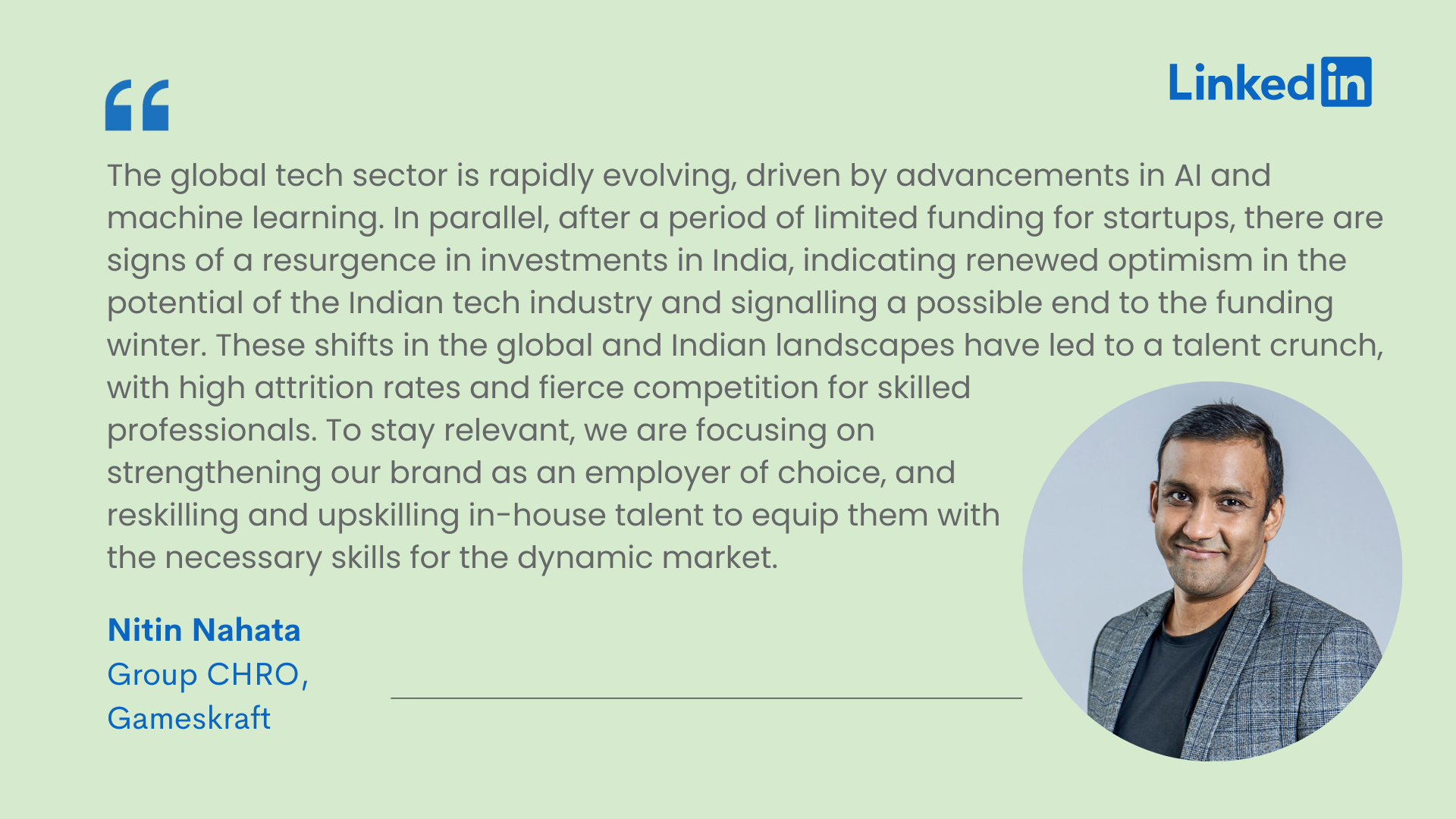
The evolving recruitment landscape: Opportunities and impact
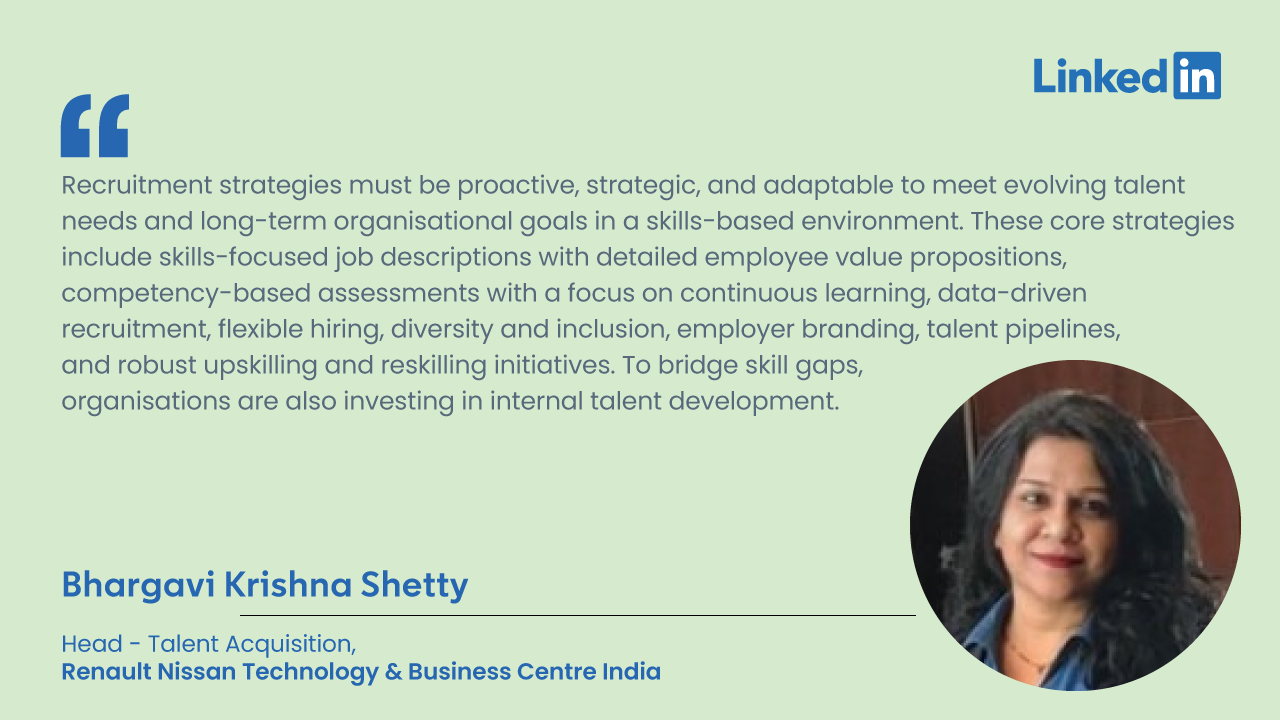
First, let’s examine why the recruitment function is ripe for automation and AI use. Conventionally, hiring has been a disjointed process requiring coordination and collaboration between several internal and external stakeholders wherein aspects like accuracy and thoroughness were given precedence over efficiency and the candidate experience. Only in the last decade have employers become cognizant of the importance of candidate experience and NPS in the overall hiring effectiveness.
These gaps leave significant room to streamline and optimise the hiring process by expediting time-consuming and repetitive tasks, such as parsing resumes, scheduling interviews and assessing standardised tests. Furthermore, AI tools can go one step further by automating candidate search, identifying passive talent pools and personalising engagement efforts. So, AI has the potential not just to make recruitment faster but also more efficient, reliable, objective and engaging. This can usher in a new era of skills-based hiring and talent development, which is crucial in the age of AI and is a priority for 87% of all recruiting professionals in India.
Naturally, these shifts have had a fallout on several related industries and ecosystems. Let’s focus on two of these crucial industries to understand how the introduction of AI in recruitment will change how we train, source and staff the future workforce.
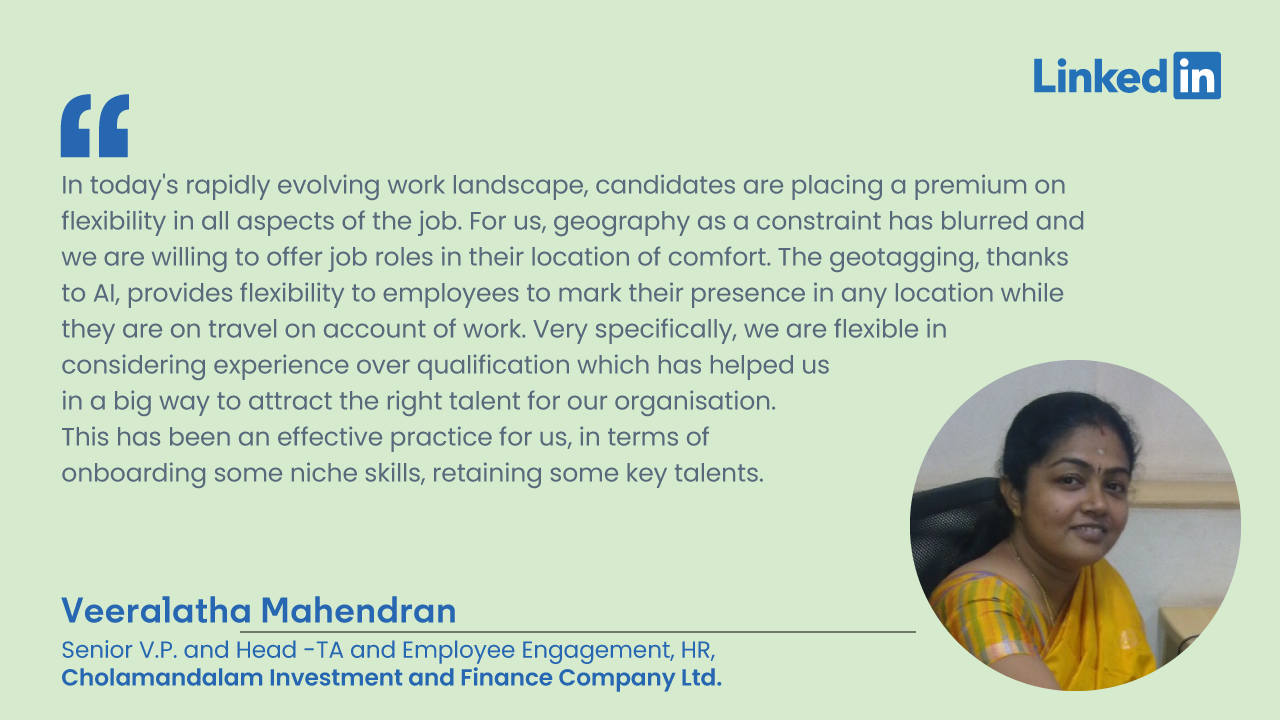
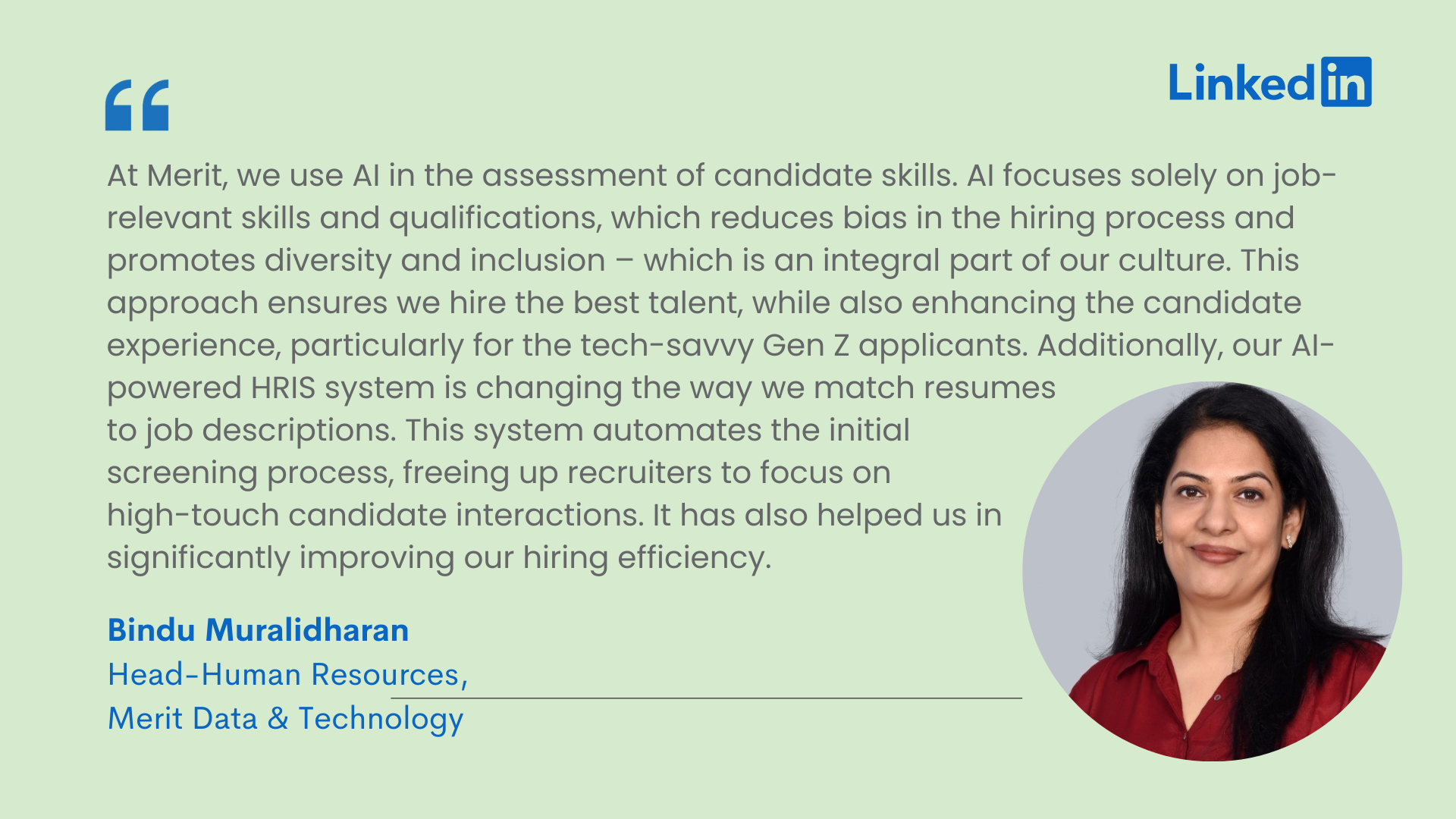
Search & Staffing firms: Redefining the role
Staffing firms have played a pivotal role in supplying employers with future-ready talent, but their challenges have also compounded in the past few years. In the face of limited pools of high-quality talent that are AI-ready and continually changing organisational requirements, search and staffing firms have had to reckon with long-standing operational inefficiencies and staggered candidate experiences. Moreover, new-age staffing firms offering AI tools have disrupted the market at lightning speed, making the industry more competitive than ever.
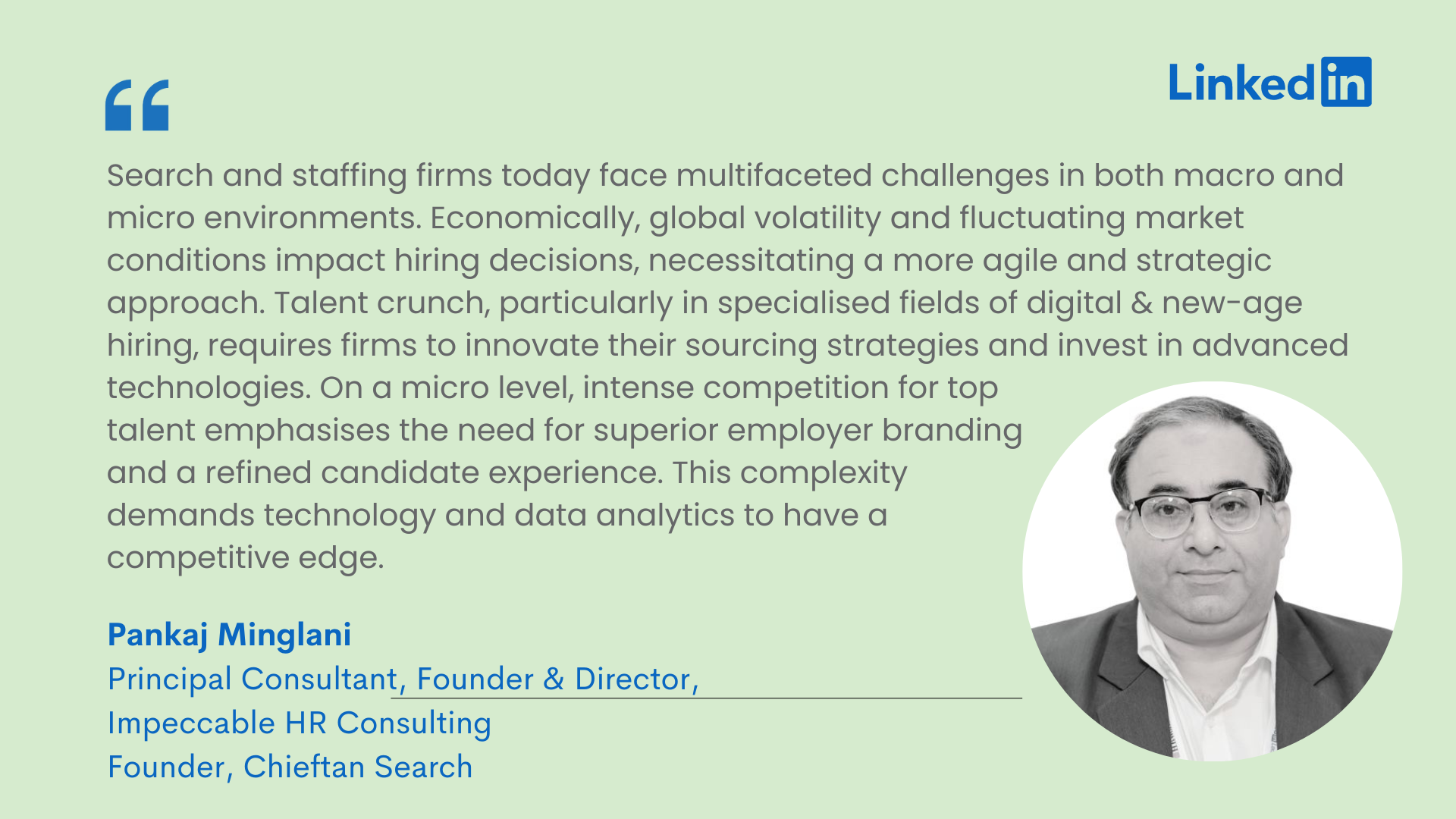
As the recruitment landscape evolves, staffing firms will likely offer highly personalised hiring experiences for employers and candidates alike. In an AI-driven world, they will specialise in identifying candidates with coveted competencies - such as leadership, communication, decision-making and complex technical skills.
The integration of AI in the search and staffing industry marks a paradigm shift, enabling firms to transform their operations fundamentally. Predictive analytics empower recruiters to anticipate hiring needs and proactively build robust talent pipelines. Advanced algorithms enhance decision-making by identifying patterns and predicting candidate success, thus reducing human bias.
Pankaj Minglani of Impeccable HR Consulting also adds, “AI tools like LinkedIn Talent Insights facilitate the identification of passive candidates through data analysis of social profiles and online activities, uncovering talent that traditional methods might miss. This evolution underscores a strategic shift towards data-driven decision-making, enhancing both efficiency and effectiveness.”
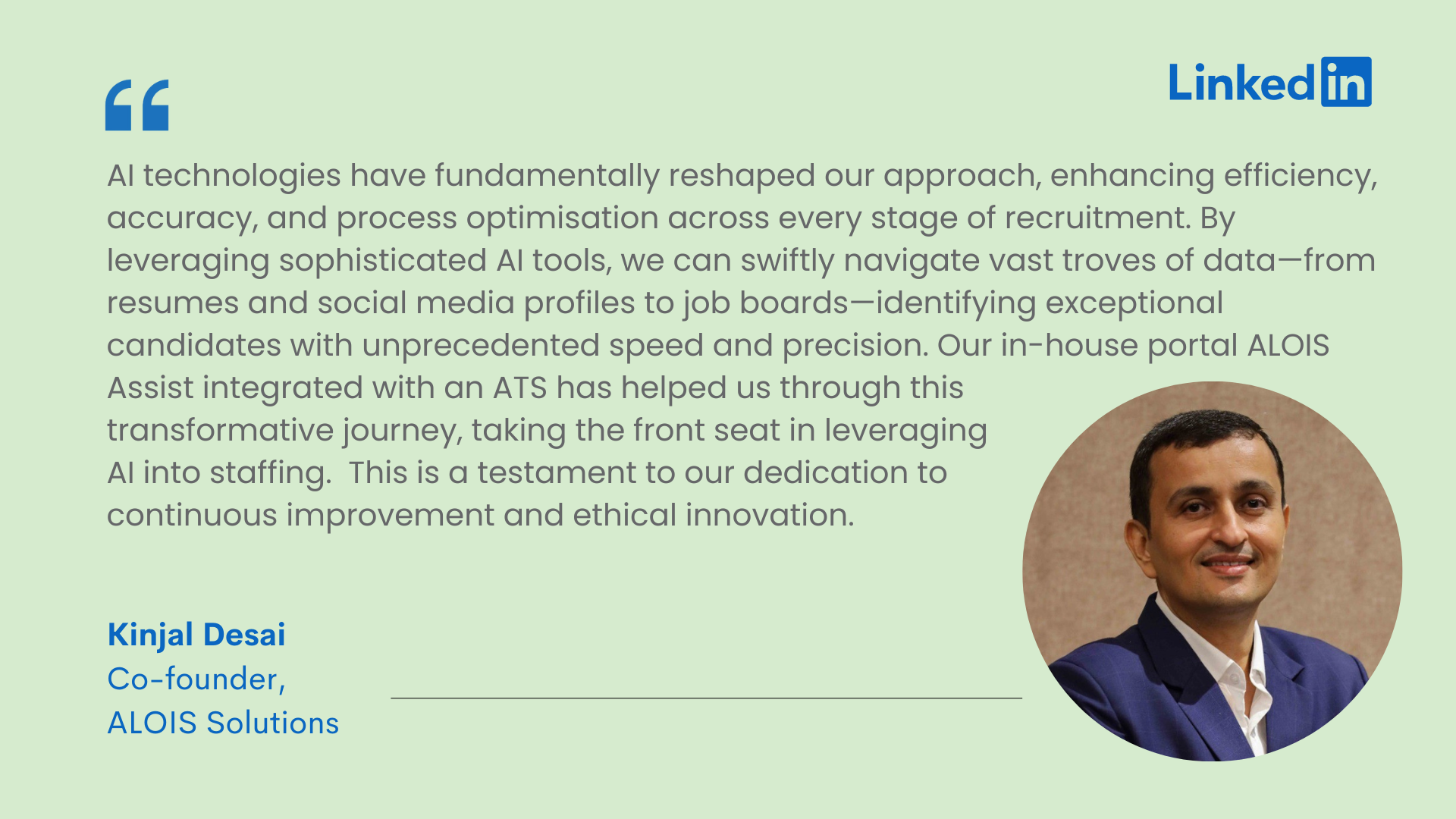
Nipping it in the bud: Fostering a Culture of Continuous Learning
The strides made by AI have also increased pressure on educational institutions to train future-ready workforces. In India, where according to the India's Graduate Skill Index: 2023 report, more than half of all college graduates do not have sufficient employable skills, this is an opportunity to embrace modern curriculum and forward-thinking learning pedagogies. Higher education institutes can pioneer curriculum and testing standardisation and lifeline learning in today’s students and equip them with the required ethical considerations, along with playing an advisory role in shaping public policy on technology and education.
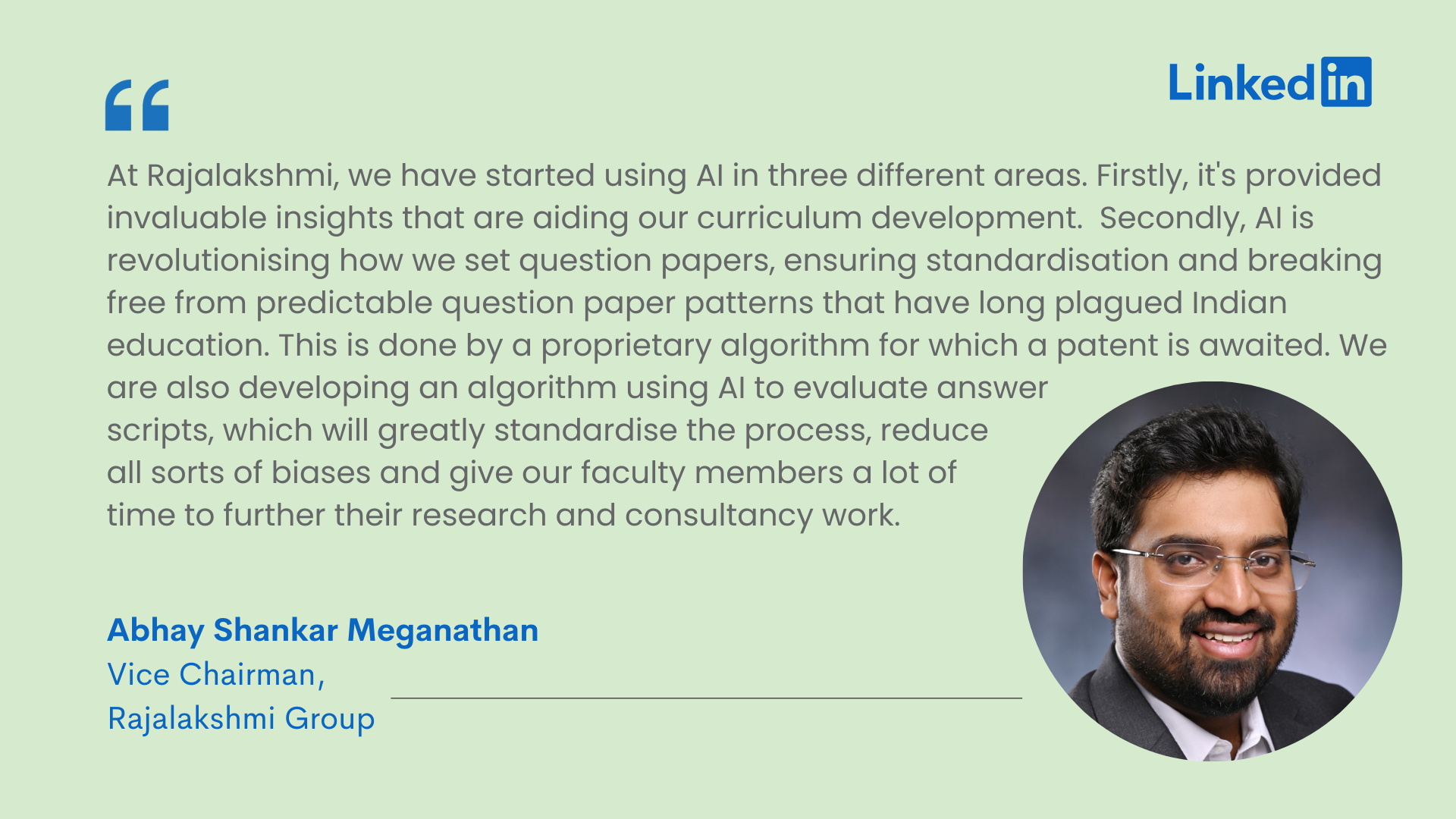
Partnerships between industry and academia are likely to give birth to new types of training programs, upskilling initiatives, and academic structures that will equip a modern workforce with the necessary skills to thrive in a digital world. This will be crucial to building a strong talent pipeline that will enable organisations to build resilience and future-proof their operations.
The human element: Balancing AI and people skills
AI tools are forcing organisations and industries to redesign existing work processes, business models and performance metrics. Naturally, this reorientation has also become a part of the recruitment function, but there’s a growing consensus in the HR community that hiring needs to be a collaborative process between AI and humans for maximum output. Staffing firms are leading the way in implementing AI-powered hiring frameworks while retaining the crucial human perspective and decision-making in the process.
As AI handles repetitive tasks, we believe it's crucial for recruiters to continually enhance their soft skills—empathy, communication, and emotional intelligence. These qualities are instrumental in navigating the nuances of candidate engagement, addressing concerns, and fostering productive relationships throughout the hiring process.
This will make it necessary for TA professionals to hone people skills like communication, empathy, creative thinking, problem-solving and research. Thus, there is an urgent need to upskill HR professionals not just to operate AI tools to achieve the desired outcomes but also to analyse data, exercise human judgement and identify biases. Even in academic circles, experts agree that while digital skills to operate AI tools are indispensable, they must be accompanied by other coveted people skills that allow workers to implement their intellect while scaling outputs. Students also need to enhance their technical proficiency, data literacy and decision-making skills to maximise their employability in the age of AI.
These transformations are also changing how education is imparted to students. Institutes need to stay ahead of the curve and demonstrate the value they bring to learning when AI tools are increasingly being trained to act as tutors. By using AI to develop personalised curriculums and create standardised assessments, educational institutions are paving the way for updating many traditional educational practices as well.
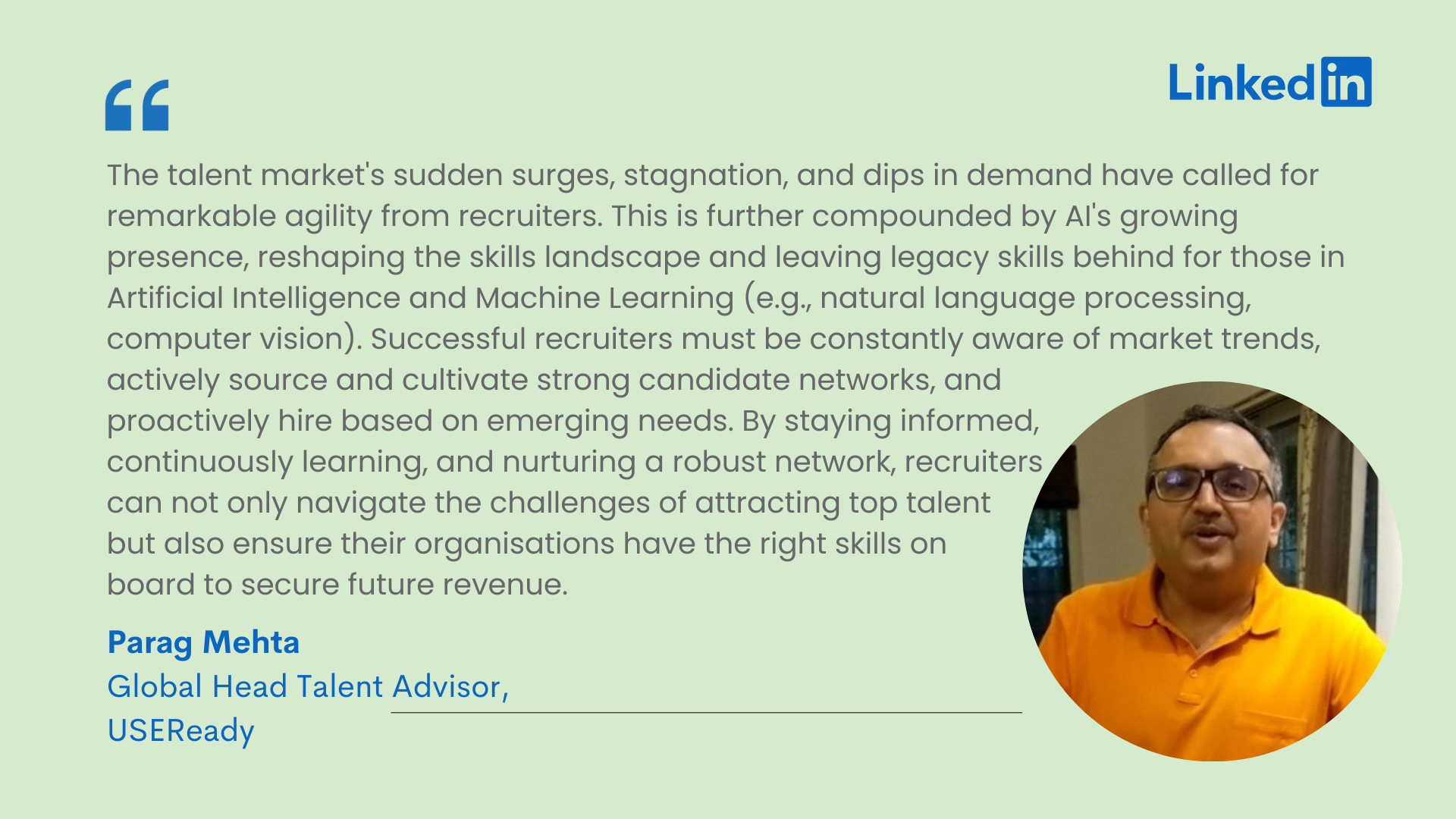
Building a future-proof recruitment strategy
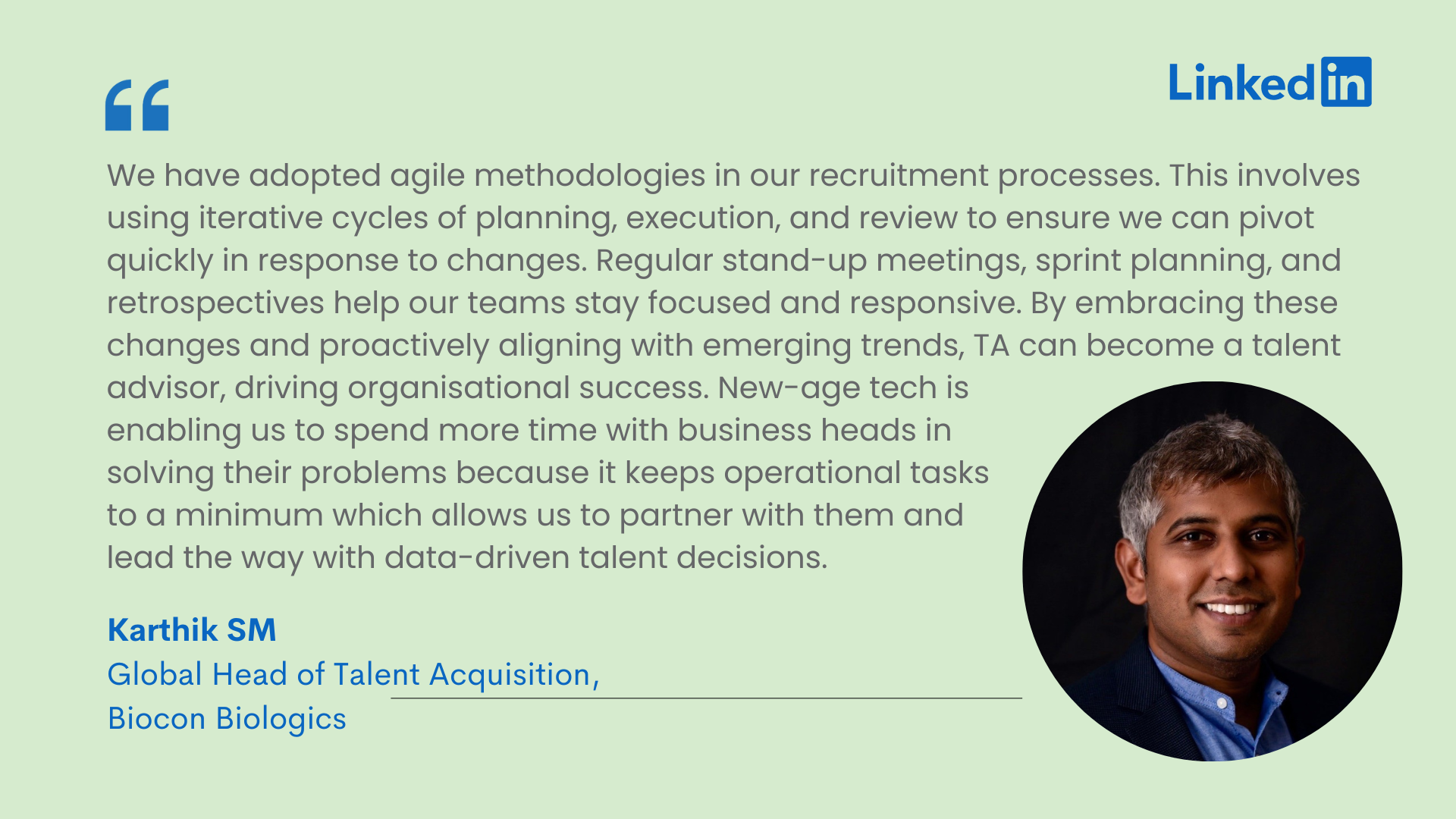
Karthik also shares, “With our penetration into the global market, our search in the last one year has been focused on the untapped market. We are building our capability by providing data insights to our leaders and LinkedIn Insights have come in very handy along with other market intelligence reports that we have gathered through our LinkedIn partnership. This has helped us succeed in a big way.”
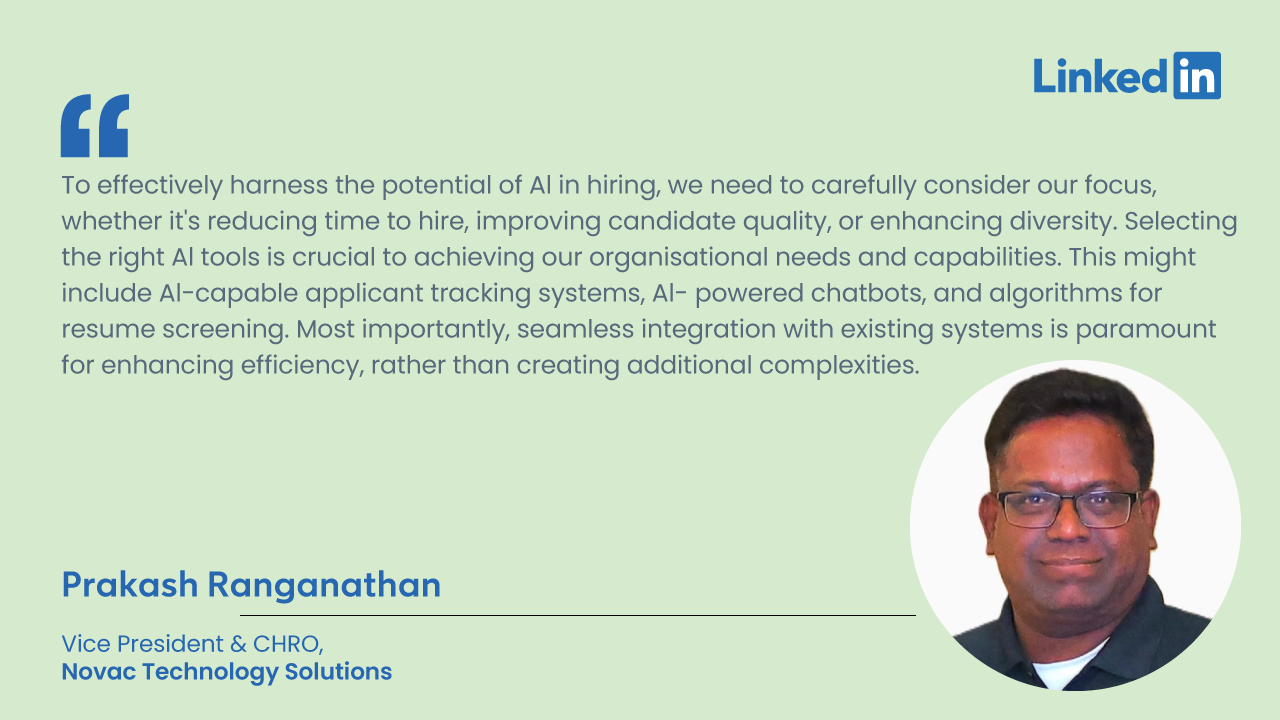
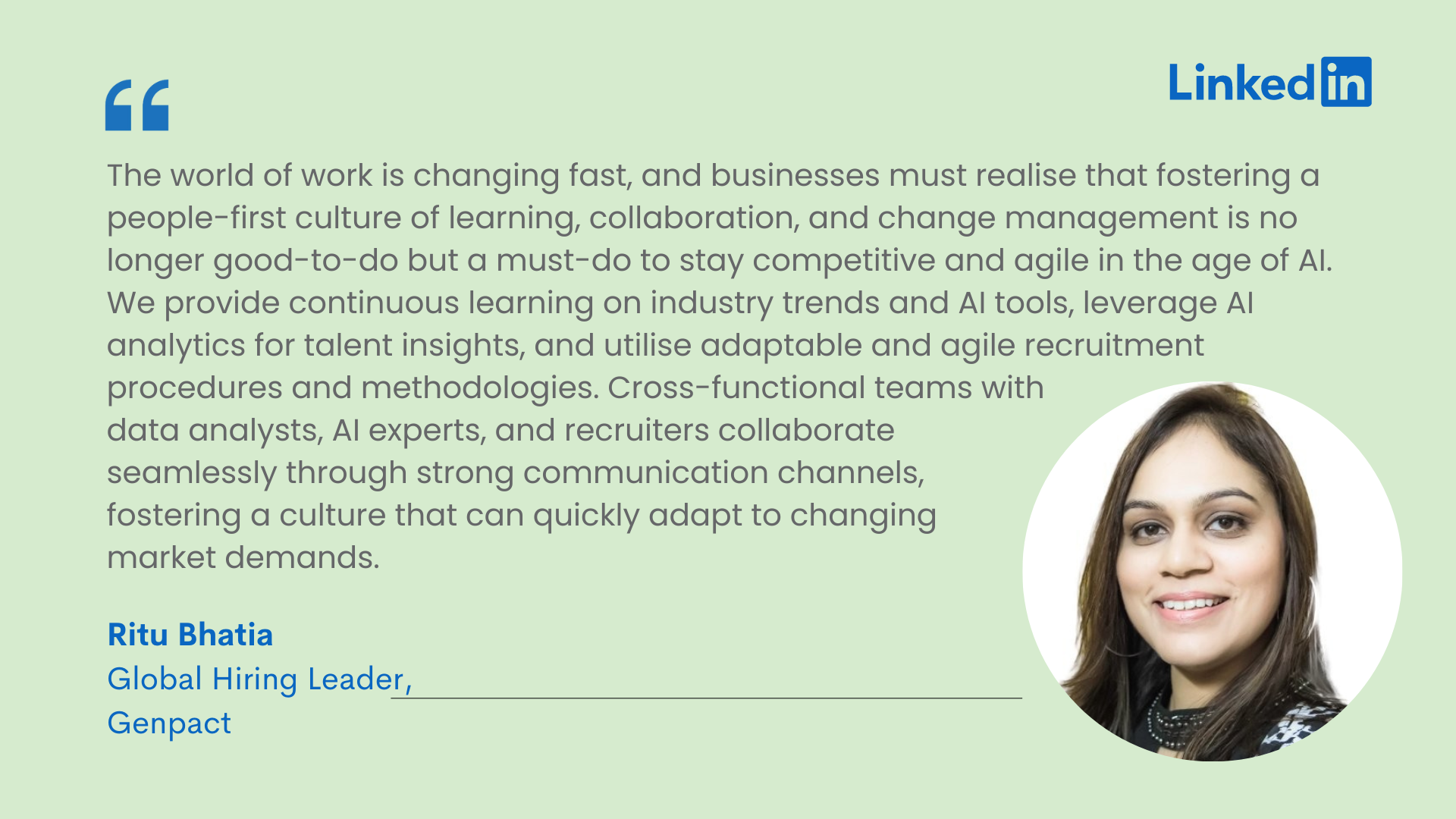
Recruitment and hiring professionals today undoubtedly wield immense influence over the future of talent acquisition. While AI tools promise great benefits, it’s incumbent upon today’s HR professionals to use them responsibly, ensuring ethical data usage and preventing algorithmic biases. These transformations cannot take place in isolation and must be accompanied by the following:
-
Skills-based hiring frameworks: to adequately prioritise people skills
-
Checks and balances: in the form of periodic audits to identify potential biases and inefficiencies
-
Robust candidate experience and feedback mechanism: to engage candidates and allow them to dispute AI-based decisions.
In essence, while technology enhances efficiency, it is the commitment to understanding the human side of recruitment that sets organisations apart. Talent leaders must strive to integrate technological advancements with personalised attention, ensuring that every interaction with candidates reflects their dedication to excellence and empathy in recruitment.






